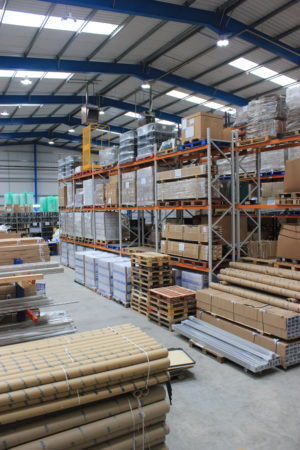Stability will emerge from the chaos


Price increases form part of a bigger picture, observes Dave Broxton, MD of Bohle, and now is the time to assess the relationship with your suppliers so opportunities are maximised.
With supplier prices rocketing, the onslaught on consumer-facing businesses can feel relentless. So much so that some companies are questioning the practice of constantly passing price increases down the supply chain.
But price volatility is just a symptom of wider global forces, from which none of us are immune, argues Dave Broxton, MD of Bohle.
“We introduced a new pricing structure in August, but looked at in the wider context of previous price increases – and the value in our product and service offer – then I’d argue our customers are actually in a strong position,” he says.
Since Bohle in the UK is a subsidiary of the German parent company, UK customers benefit from the price stability inherent in that model, according to Dave.
“The last significant price review by Bohle was in 2019,” Dave says. “Unlike most companies, we didn’t increase prices in 2020 or 2021, although we did introduce a 5% increase in March, related specifically to increased carriage and energy costs primarily, rather than products.
“In fact, rather than simply raise prices, we’ve adjusted our model so that customers can access a preferential discount rate across the whole product range. Therefore, if you want to make a one-off purchase of one item, but you regularly bulk-buy another, you can carry your discount across.”
But the underlying point is that manufacturing, importing, and supplying products now come at an increased cost because of the volatility of the global markets – a situation no-one can escape from.
“In 2019, the cost of a shipping container was £2,000,” Dave says. “Earlier this year it went to £20,000, and it has since settled to £16,000, which is still an 800% increase. That cost has to be amortised across the products you are shipping.
“In 2019, the price for aluminium was $1,740 per tonne, and it rose to a peak of $3,500 per tonne in May 2022, and it is currently over $2,500 per tonne. Diesel’s gone up 54% since 2019, steel’s gone up 58%, silicon has gone up 250%, and then you start looking at gas and electric – up 1,200% and 700% respectively on 2019 prices.
“All these things factor into the way you run your business.”
Dave sounds a note of caution for those companies that only see the price increases, and not the wider context.
“I doubt most companies are trying to gouge customers at the moment,” he says. “Suppliers are just trying to cope with the demand we have got, while resources are in short supply globally, and the price of raw materials changes daily.
“If a price has risen by 40%, that doesn’t mean your supplier is making 40% more from you, it more likely means that raw materials and carriage have risen dramatically. Margins are being inexorably squeezed and they are what pay for customer service staff, technical support, online access and next-day delivery. If companies just try to absorb these significant cost increases, they won’t be around for the future.”
While the short-term worry is price instability, Dave says that the market for glass consumables, and glass hardware in particular, has changed for good, because manufacturers in China are not able to access raw steel and aluminium at lower rates than European manufacturers. This, in turn, is going to influence the purchasing decisions of UK companies.
“I think people are going to be looking for shorter supply lines, with better guarantees of resilience,’ he says. “Bohle is based in Germany, and we are committed to maintaining strategic stocks, which gives us a high degree of stability.
“If, for example, you are still importing small orders to the UK from China, it is a nightmare to keep on top of the paperwork and extra costs that are incurred. And they are not getting their products quickly. If they run out of stock in the intervening period, then they will be letting their customers down. That’s why it’s important to partner with companies like Bohle that have the inventory, stability, strong financial backing, and great quality products.
“And, actually, we are already seeing that translate into increased demand at Bohle because we are picking up the slack created by other suppliers who are struggling to meet demand – and we are investing in the infrastructure to cope, including new machinery.”
